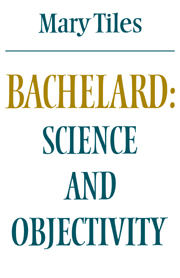Book contents
- Frontmatter
- Contents
- Editor's Introduction
- Preface (and Postscript)
- Acknowledgments
- Abbreviations
- 1 Philosophy of science: the project
- 2 Non-Cartesian epistemology and scientific objectivity
- 3 Non-Euclidean mathematics and the rationality of science
- 4 Non-Baconian science and conceptual change
- 5 The epistemology of revolutions – between realism and instrumentalism
- References
- Appendix: Biographical note
- Index
4 - Non-Baconian science and conceptual change
Published online by Cambridge University Press: 14 November 2009
- Frontmatter
- Contents
- Editor's Introduction
- Preface (and Postscript)
- Acknowledgments
- Abbreviations
- 1 Philosophy of science: the project
- 2 Non-Cartesian epistemology and scientific objectivity
- 3 Non-Euclidean mathematics and the rationality of science
- 4 Non-Baconian science and conceptual change
- 5 The epistemology of revolutions – between realism and instrumentalism
- References
- Appendix: Biographical note
- Index
Summary
It is characteristic of modern science to insist on the importance of detailed and precise experiments as well as on working toward very general abstract theories (see Chapter 1 p. 10). Moreover, the striking feature of its experimental aspect is its degree of technological sophistication. This is another of the respects in which twentieth-century science differs from earlier science. It is to capture this aspect of modern science that Bachelard coins the term ‘phenomeno-technique’; to advance from Baconian to non-Baconian science is to go from phenomenology to phenomeno-technique.
Just as in his use of the terms non-Cartesian and non-Euclidean, Bachelard described modern science as non-Baconian not simply in order to reject Baconian or inductivist accounts of it, but to stress that science does have an empirical base and that the nature of this base has changed. Science had to be Baconian before it could be non-Baconian; aspects of the everyday world, the world of common sense, have first to become objects of scientific investigation before they can be objects of scientific knowledge, and the kind of systematic, documented observation that was to be carried out by groups of scientists in New Atlantis is seen, by Bachelard, as being crucial to this process.
FROM COMMON SENSE TO BACONIAN SCIENCE
Bachelard sees the transition from common sense to science as involving a reversal of epistemological values, a devaluing of what seemed obvious (see Chapter 2 p.56).
- Type
- Chapter
- Information
- Bachelard: Science and Objectivity , pp. 120 - 179Publisher: Cambridge University PressPrint publication year: 1984



